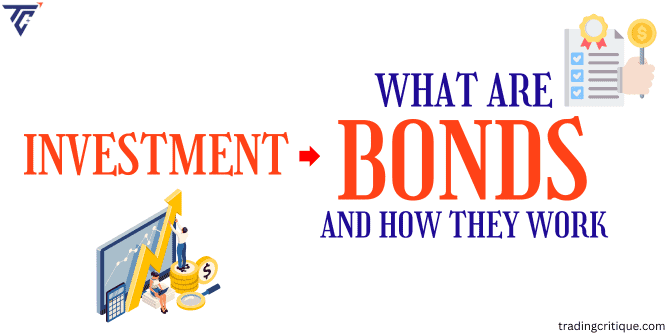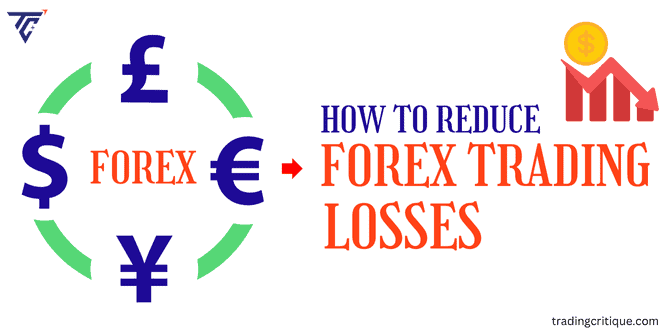How to Start Invest in Bonds 2024: 6 Steps to Buying Bonds
Investing in bonds can be a great way to diversify your portfolio and generate steady income. Here’s a comprehensive guide for beginners on how to invest in bonds and where to buy a bond.
Quick Insights
Like buying stocks, you can buy individual bonds directly through a brokerage account. You choose which bonds to invest in, but make sure they match your risk tolerance and financial goals.
If you’re unsure which bonds to pick or prefer expert management, invest in bond mutual funds or ETFs. These funds pool money to buy a variety of bonds, managed by professionals, offering convenience and diversification.
For safe government bonds, buy directly from the U.S. Treasury via Treasury Direct. Skip the middleman, like a broker, saving on fees.
What is a Bond?
A bond is a way for governments, cities, and companies to borrow money from investors to fund various projects or cover expenses.

When you purchase a bond, you’re essentially lending money to the issuer—whether it’s a government, municipality, or corporation. In return, you receive periodic interest payments and the repayment of the bond’s face value upon maturity.
How do bonds work?
- Issuance: A government, city, or company needs money and decides to issue bonds to raise that money instead of taking a loan from a bank.
- Face value: Each bond has a face value, which is the amount the bond is worth when it is issued and the amount the issuer promises to pay back at maturity.
- Maturity date: This is the date when the issuer must pay back the face value of the bond to the investor. It could be a few months, years, or even decades away.
- Coupon rate: This is the interest rate that the bond issuer will pay the bondholder. Typically, bond yields are expressed as a percentage of their face value.
- Interest payments: The issuer pays interest to the bondholder at regular intervals (Usually annually or semi-annually) until the bond reaches its maturity date.
How to invest in bonds for beginners
Investing in bonds for beginners involves a few key steps and options to consider.
Understanding bond basics
Bonds are essentially loans that you provide to governments or companies. In return, they pay you interest over time and return the principal amount when the bond matures.
Where to buy bonds investment?
Buying a bond is simple in three ways are:
- Brokerage account
- Bond mutual funds and ETFs
- Directly from the U.S. Treasury
Through a brokerage account
- Just like buying stocks, you can purchase individual bonds through a brokerage account.
- However, this method requires you to analyse the company's financial health to ensure they can make payments.
Bond mutual funds and ETFs
- When you buy a bond mutual fund or exchange-traded fund (ETFs), you're letting experts pick the bonds for you.
- They group different bonds into a fund based on types or durations.
- So, you don't have to choose specific bonds yourself.
- It's like buying a ready-made bundle of bonds selected by professionals.
Directly from the U.S. Treasury
- The U.S. government allows you to buy treasury bonds directly through Treasury Direct, cutting out the need for a broker and associated fees.
Consider ETFs
- Exchange-Traded Funds (ETFs) can be particularly appealing for beginners.
- ETFs give you diversification, low fees, and tax benefits. Pick ETFs that match your goals and how much risk you're comfortable with.
Transaction costs
When buying or selling bonds through a broker, you might encounter commissions or markups, which are costs associated with the transaction. Be sure to factor these into your investment decisions.
Redeeming savings bonds
If you have paper government savings bonds, you can cash them after holding them for at least 12 months. You can redeem them at your local bank.
Tax considerations
The benefit of investing in bonds
Investing in the bond market comes with several advantages that make them a valuable addition to your investment strategy.
Spreading your investments
Adding bonds to your investment mix can help balance out the ups and downs of stocks. If all your money is in stocks, your investments might swing wildly with the stock market. Bonds offer stability, so when stocks are down, bonds can help soften the blow to your overall portfolio.
Safe and trustworthy
Bonds are generally considered safe investments. Government bonds, like those issued by the U.S. Treasury, are backed by the government’s promise to pay, which is pretty solid. Even if a company issues bonds and then runs into financial trouble, bondholders are usually paid back before shareholders.
Regular earnings
Bonds provide a steady stream of income through regular interest payments. Unlike stocks, which can be unpredictable, bonds usually pay interest at a fixed rate, typically twice a year. When the bond reaches its maturity date, you get back the initial amount you invested, plus any remaining interest.
Types of bonds
Bonds typically serve as financial instruments where you lend money to an entity (like a corporation or government) in exchange for periodic interest payments and the return of the principal amount at a later date.
There are four main types of bonds, each serving different purposes and having different risk levels and benefits.
Corporate bonds
Corporate bonds are issued by companies to raise capital for various business needs. There are two main types:
Investment-grade corporate bonds
These are issued by stable, financially sound companies like Amazon or Google. They are considered safe investments with a low risk of the company defaulting on payment, meaning you’re likely to get your money back with interest. However, because they are safer, they offer lower interest rates.
High-yield corporate bonds (junk bonds)
Also known as junk bonds, these are issued by companies with lower credit ratings, such as start-ups or financially struggling companies. They come with higher risk but also higher potential returns due to their higher interest rates.
Government bonds
Government bonds are like loans you give to the government. They promise to pay you back with some extra money (interest) after a certain time. They’re considered safe because governments can usually pay their debts.
Additionally, income from federal government bonds, like Treasury securities, is usually exempt from state and local taxes. However, if you own bonds or funds containing them, you must calculate this exempt income yourself for tax purposes. It won’t be shown on your investment company’s tax forms.
Treasury bonds (T-bonds)
These are long-term loans to the government, usually lasting 20 to 30 years. They pay you back some money every six months, and you can sell them to someone else if you want.
Treasury notes (T-notes)
These are like medium-term loans to the government, lasting from 2 to 10 years. You get paid interest every six months, and you can sell them early too.
Treasury bills (T-bills)
These are short-term loans to the government, lasting a year or less. Instead of paying interest every six months, you buy them for less than they’re worth and get paid back the full amount when they mature.
Treasury inflation-protected securities (TIPS)
These are like regular bonds, but their value changes with inflation. So, if prices go up, your investment goes up too, protecting your money from losing value.
Municipal bonds
Municipal bonds are issued by state, city, or county governments to fund public projects like schools, roads, and hospitals. These bonds offer tax advantages, as the interest earned is often tax-free at the federal level and sometimes at the state and local levels.
Agency bonds
Agency bonds are issued by government-affiliated organizations but are not treasury securities. They come in two types:
Federal government agency bonds
Issued by agencies like the Federal Housing Administration (FHA) and Small Business Administration (SBA), and backed by the credit of the U.S. government, making them very safe.
Government-sponsored enterprise (GSE) bonds
Issued by entities like Fannie Mae and Freddie Mac, which are supported but not fully backed by the government. They carry more risk but offer higher interest rates.
Conclusion
Investing in bonds offers a stable and reliable way to diversify your portfolio, generate steady income, and mitigate risk. Bonds come with risks, notably interest rate risk. When rates rise, bond values can fall.
Once you grasp bond fundamentals, explore different types and consider investment options like ETFs. This way, you can start your bond investment journey confidently.
Whether you choose corporate bonds, government bonds, municipal bonds, or agency bonds, remember to assess your risk tolerance, consider tax implications, and interest rate risk, and stay informed about market conditions.
With careful planning and prudent decision-making, bonds can play a valuable role in achieving your financial goals.
Pro Tip
Start investing in Bonds as prescribed, but do your own research before making any investment. Our trusted Forex broker helps you to stay updated on various investment options such as stocks, CFDs, banking, forex, trading, investment, and cryptocurrencies. Find reliable broker reviews to make smart trading decisions.
Frequently asked questions
1. Why are bonds issued?
- Companies and governments issue bonds as a way to raise capital.
- It's a cost-effective way to access large amounts of money.
- Bonds offer lower interest rates compared to bank loans.
- Issuing bonds helps finance projects or operations.
- Bonds are a form of borrowing, but they're cheaper than other options like bank loans.
- Another way companies raise funds is by selling stocks, which represent ownership in the company.
2. How much should I invest in bonds?
Around 30% of your portfolio is common for midlife investors, increasing closer to retirement. Bonds give steady income and stable assets during retirement.
3. How do you make money from bonds?
You make money by getting regular payments from the bond issuer and selling the bond for a higher price than you paid.
4. Can I lose money with bonds?
Yes, when the economy is strong, bond prices drop as interest rates rise. If you sell a bond when rates are higher than when you bought it, you might lose money.
5. How bonds are rated?
Credit rating agencies like Standard and Poor’s, Moody’s, and Fitch Ratings assess bonds. The best is ‘investment grade,’ such as U.S. government bonds and stable company debt. Those not meeting this grade are termed ‘high yield’ or ‘junk’ bonds, signalling higher risk and requiring higher coupon payments.

Subscribe to
Our Newsletter
Latest Posts
How to Trade Forex | Learn 6 Strategies and Tips
Discover the world of forex trading with our comprehensive guide. Learn essential...
Read MoreFP Markets Review 2024: Everything You Need To Know
Founded in 2005, FP Markets is a leading online broker renowned for...
Read MoreHow to Invest in Ethereum in 2024 – Simple Guide for Beginners
Ethereum is a decentralized blockchain platform that enables smart contracts, enabling secure,...
Read MoreIs Cryptocurrency a Safe Investment? What You Need To Know
Investing in cryptocurrency involves selecting the right cryptocurrency and securely storing your...
Read MoreHow to Read Forex Charts for Beginners • Simple Methods
Traders look for the currency pair price movements, their patterns, and their...
Read MoreBonds: What it is, Types of Bonds & How they Work (2024 guide)
Are you seeking for safe investment with predictable returns? Our 2024 guide...
Read MoreWhat are The Best Crypto Trading Strategies for Beginners in 2024?
Unsure about choosing the best trading strategies for beginners in 2024? This...
Read MoreForex Pairs: How They Work, How To Read, Examples
Forex pairs are combinations of two different currencies that are traded in...
Read MoreBest Ways to Avoid Losses in Forex Trading
Foreign Exchange – Forex market is the world’s largest financial market in...
Read More









